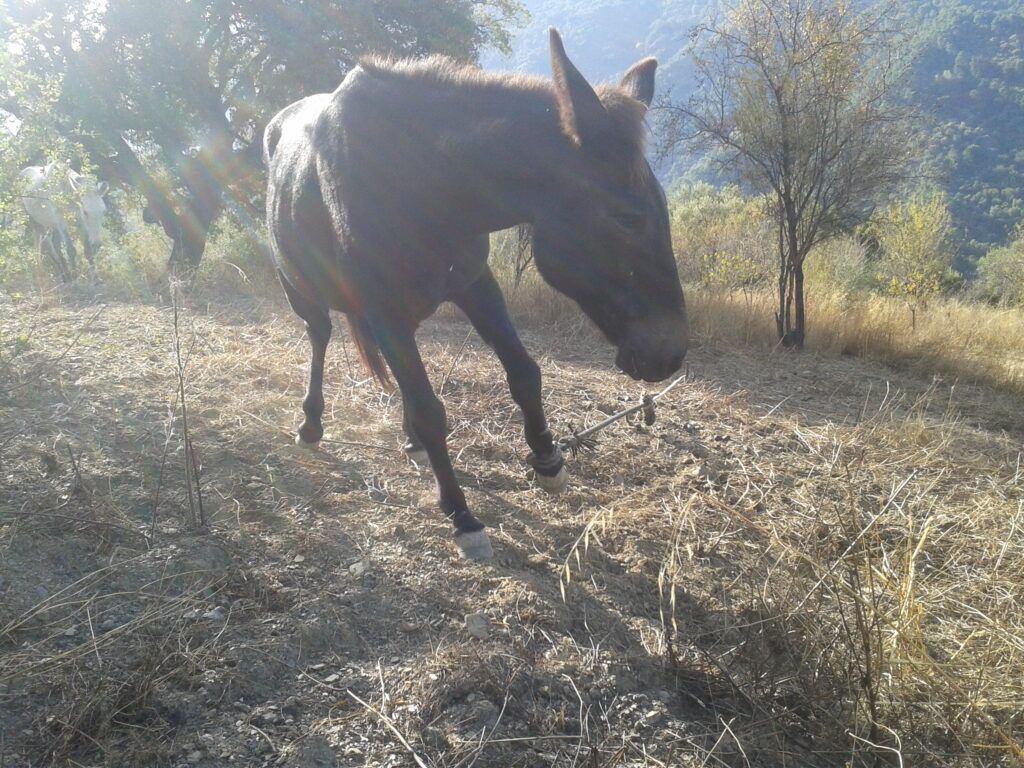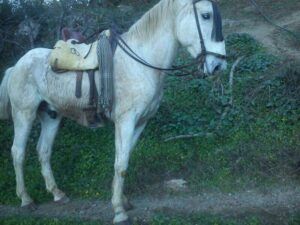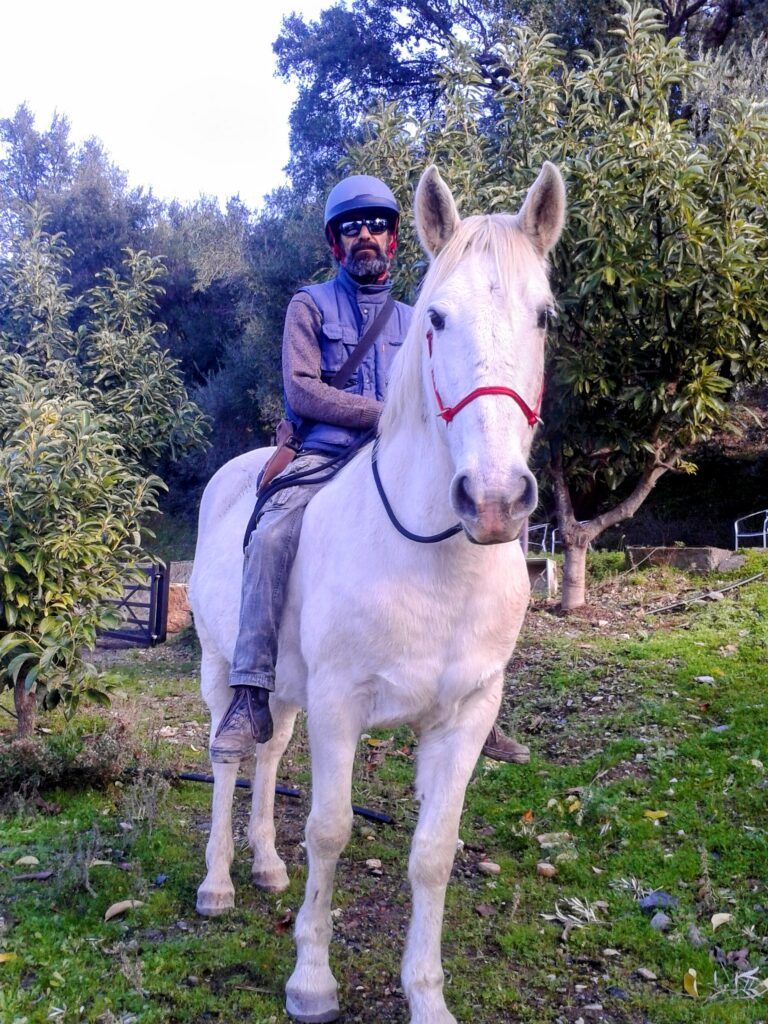- Equines in Andalusia
- How we change it
- Leading by example
- Preventation rather than cure
It is common practice for horses here to be put in a serreton: a nose-band with metal spikes set low on the horse’s nose so that it presses on the soft cartilage, causing bleeding and scarring. If you look closely at the carriage horses in Malaga, you will often see this characteristic scarring:
Hoof care is rudimentary at best and this causes pain and long term problems. Veterinary care is basic and colics are a regular occurrence because of a lack of knowledge around correct feeding and exercise. Dental care, de-worming and other treatments are unheard of.
These methods of equine keeping are more due to ignorance rather than an intentional wish to harm. One old man proudly showed me the many patches of white hairs around his mule’s withers, sides, under her girth and around her chin (all caused by ill-fitting tack and bad loading), boasting that these were a sign of what a good worker she was!
How do we get him to understand that if she wasn’t in pain, she would be a much better and happier worker? I have tried many times to explain different practices and philosophies to locals, only to be ignored or ridiculed. What could a foreign woman possibly know, and how dare she criticise the traditions passed down through generations!

All our horses are barefoot and the locals believed we were causing our horses injury by not fitting metal shoes. But they see us now, more than a decade on, riding the same horses whose hooves are still in brilliant condition, whilst their horses’ feet are crumbling away or have developed chronic problems, so they are beginning to question their beliefs.

Before and after

There are a number of rescue sanctuaries around Spain doing fantastic work and equines have been successfully removed from their owners for bad treatment. Unfortunately, though, the legally acceptable level of cruelty is way too high before most animals can be removed. Our aim is to prevent the need for this by improving the conditions for the animals by educating the owners, or if this does not work, by effectively ‘bargaining’ with them.
We know that many of these owners will not read any information, so we plan to make a grant available when we have enough funding so we can offer them, say, some free fencing materials if they agree to let their horse out of the stable.
This immediately improves the situation for the horse. We would have a contractual agreement and the fencing will be removed if they fail to keep to it. Using the same tactics, we could also provide regular de-worming treatment or hoof care, or pay for dental treatment, for instance.
If anyone is already breaking the law, we will first talk to the perpetrator and offer some help to change the situation. If no agreement can be reached then we will invoke the law.
In effect, we will offer them a choice – we will help you improve or report you.
Where it works, the result is that the equine is in a better situation and, most importantly, the next generations become used to seeing correct practices. They will know hooves get trimmed every six weeks, or that a dentist comes once a year. There will finally be good role models and decent care becomes the norm.
















